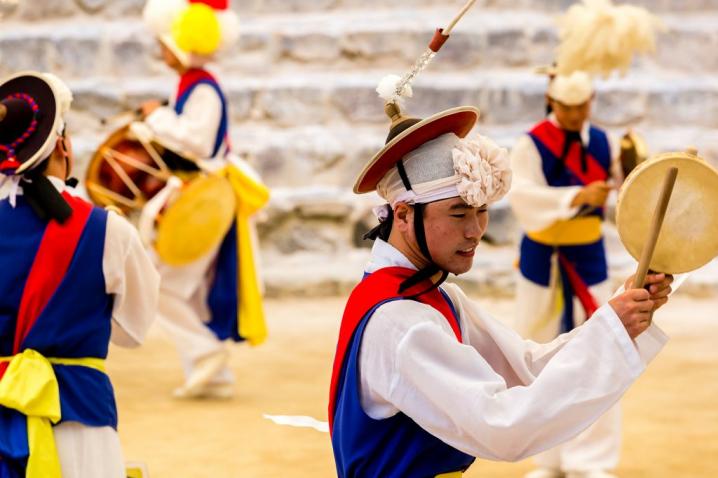The hidden Culture of Korea

Korean culture is rich and diverse, shaped by its long history, geography, and the influence of neighboring countries. Here are some key aspects of Korean culture:The Korean language, known as Hangul, has its own unique script created in the 15th century during the Joseon Dynasty. It is the official language of both North and South Korea.Confucian principles have had a significant impact on Korean culture, especially in terms of family structure, social hierarchy, and respect for elders. These values are deeply ingrained in Korean society.The traditional Korean dress, known as Hanbok, is often worn during traditional festivals and ceremonies. It is characterized by vibrant colors and simple lines. The style of the Hanbok varies for men and women. Korean cuisine is known for its bold flavors, including spicy and fermented dishes. Some popular dishes include kimchi (fermented vegetables, usually cabbage or radishes), bulgogi (marinated and grilled beef), bibimbap (rice mixed with vegetables, meat, and spicy sauce), and more.Tea has a significant cultural importance in Korea. Traditional tea ceremonies, influenced by Confucianism and Buddhism, are still practiced. Popular types of tea include green tea, barley tea, and medicinal teas.Traditional Korean architecture is characterized by its use of natural materials like wood and paper. Hanok, traditional Korean houses, often have a courtyard and underfloor heating systems known as ondol.Many traditional ceremonies and festivals are celebrated in Korea, such as Seollal (Lunar New Year) and Chuseok (harvest festival). These events often involve family gatherings, traditional rituals, and special foods. In recent years, Korea has gained international recognition for its pop culture, especially K-Pop music, dramas, and movies. The global popularity of groups like BTS and the spread of K-Dramas have contributed to the phenomenon known as the “Korean Wave.South Korea is known for its technological advancements and is home to major tech companies. The country has a high internet penetration rate, and technological innovations play a significant role in daily life.Respect for parents and ancestors is an important cultural value in Korea. Filial piety, or the duty and respect children owe to their parents, is a central Confucian concept that continues to influence Korean society.It’s important to note that while there are commonalities, there are also regional and generational variations within Korean culture. Additionally, the cultural dynamics between North and South Korea differ due to their unique historical and political contexts.
Source:Google





